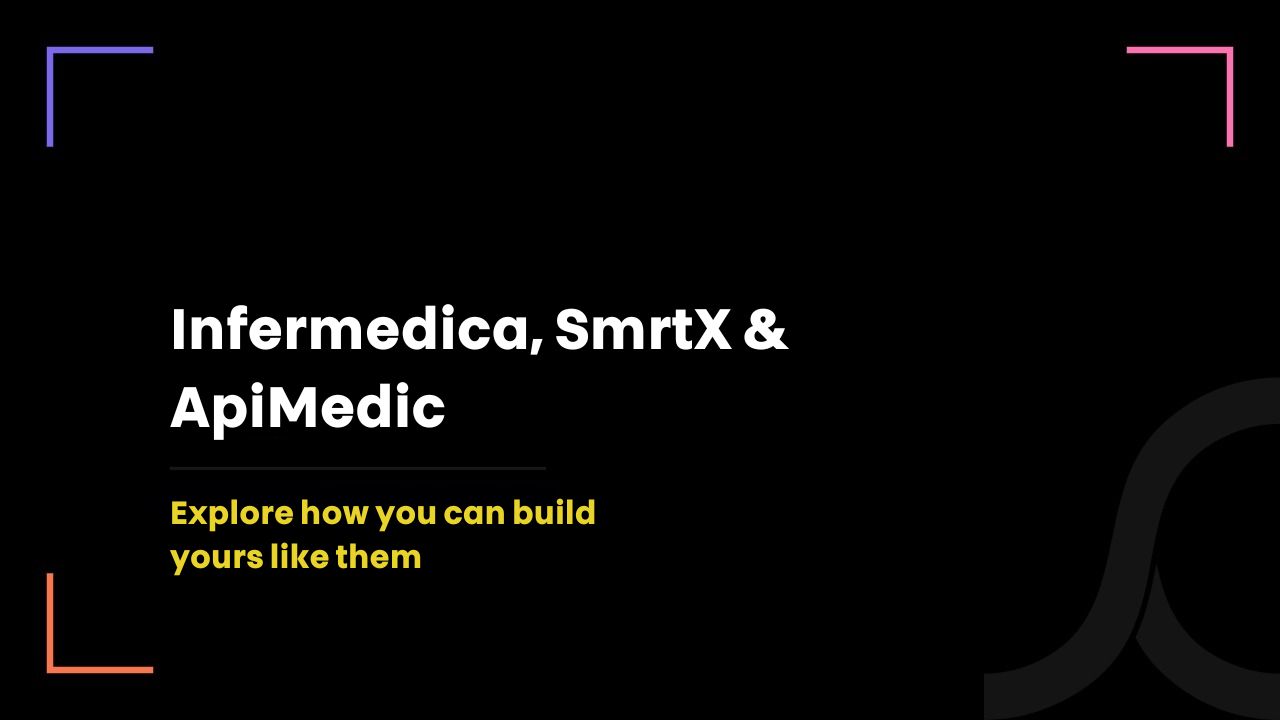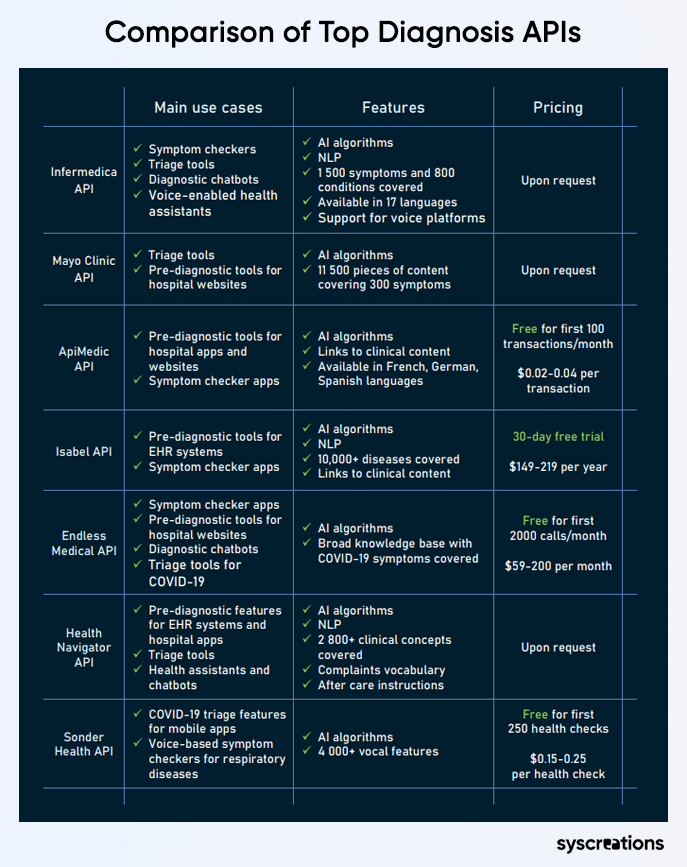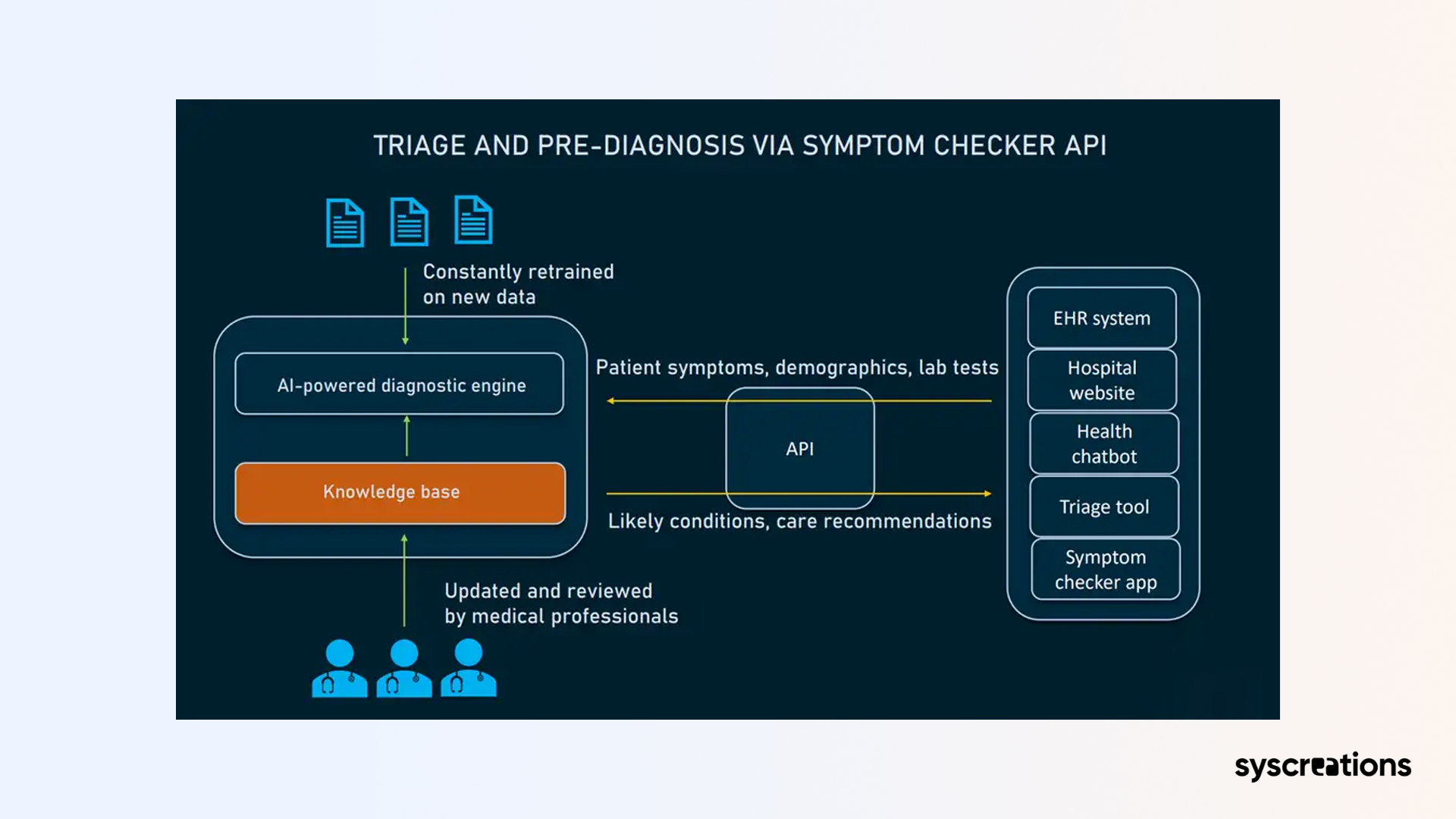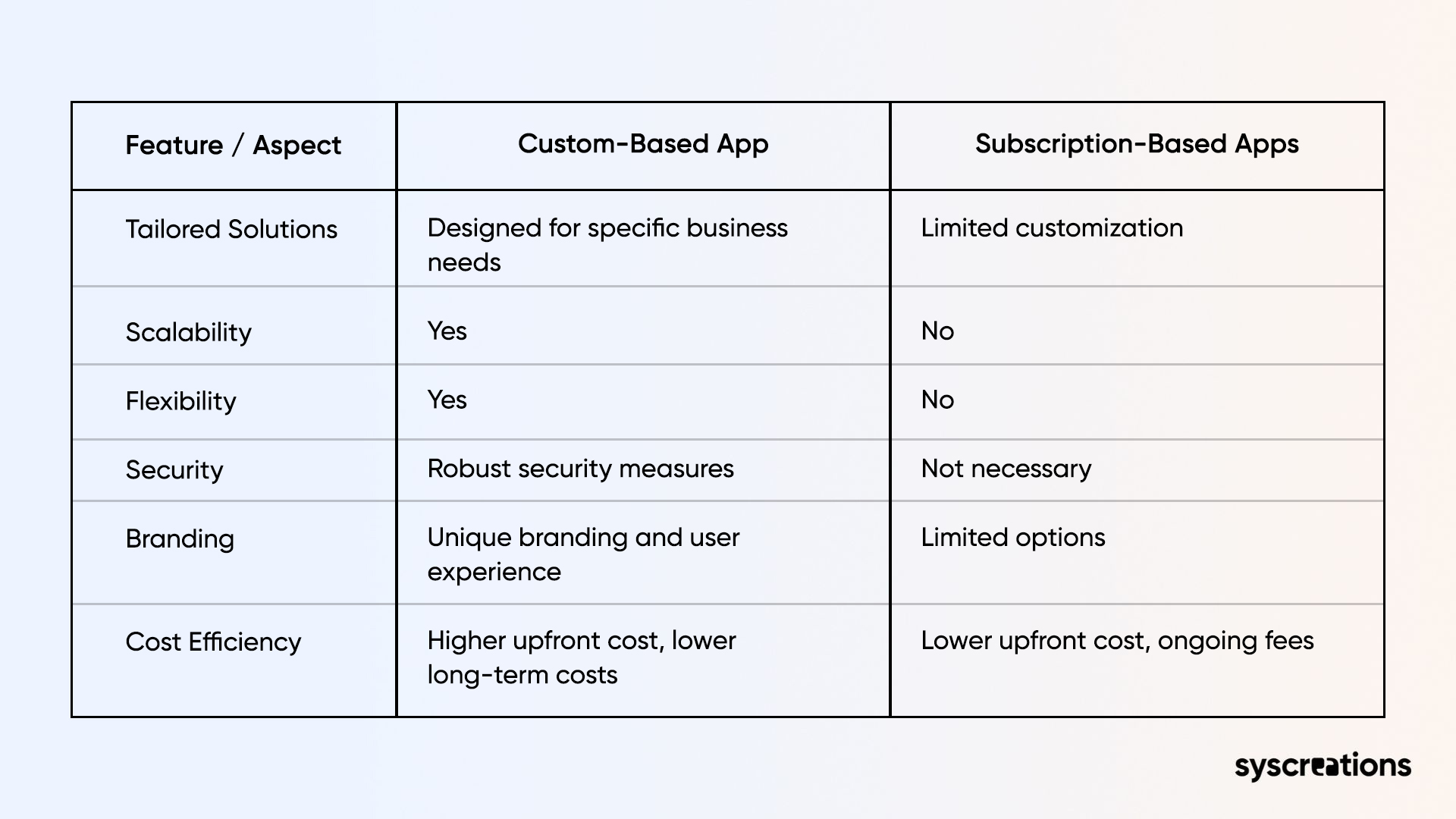How Diagnosis APIs Can Give Your Clinic a Competitive Edge

9 months ago
Diagnostic error is one of healthcare's most serious safety issues, causing the most harm.
Major diagnostic errors are detected in 10% to 20% of autopsies, implying that 40,000 to 80,000 individuals die each year in the United States due to diagnostic errors.
Patient diagnosis is an important step in healthcare since it marks the beginning of understanding and treating a medical issue.
A timely and correct diagnosis is essential for effective healthcare, as it influences treatment decisions, patient outcomes, and overall care quality.
However, reaching this ideal diagnosis is frequently laden with difficulties, ranging from the complexity of the human body to systemic flaws within the healthcare system.
Challenges Faced by Clinics in Providing Accurate & Timely Diagnosis
Clinics often grapple with several hurdles when aiming for accurate and timely diagnosis
- Complex symptoms
- Limited resources
- Delays in seeking medical attention
- Human error
- Lack of standardization
- Time pressure
- Access to information
How do healthcare organizations and providers can quickly address these challenges?
The answer is clear and short — via Diagnosis APIs.
What is the Diagnosis API?
Diagnosis APIs are digital tools enabling healthcare systems to integrate advanced diagnostic capabilities into their platforms.
These APIs use machine learning, artificial intelligence, and extensive medical databases to assist in diagnosing a wide range of conditions.
By integrating these APIs, clinics can enhance their diagnostic processes, streamline workflows, and improve patient outcomes.
Benefits of Diagnosis APIs for Clinics
1. Enhanced Diagnostic Accuracy
Diagnosis APIs leverage vast amounts of medical data and sophisticated algorithms to provide accurate diagnostic suggestions.
This can significantly reduce the risk of misdiagnosis and ensure that patients receive appropriate treatment promptly.
2. Faster Diagnosis
With diagnosis APIs, the time taken to arrive at a diagnosis can be drastically reduced.
These tools can quickly analyze patient data, compare it with millions of medical records, and provide a list of potential diagnoses.
This speed is crucial in emergencies and for improving overall patient satisfaction.
3. Improved Workflow Efficiency
Integrating diagnosis APIs into your clinic’s electronic health record (EHR) system can streamline workflows.
Physicians can quickly access diagnostic suggestions and relevant medical information, reducing the time spent on manual research and allowing them to focus more on patient care.
4. Continuous Learning and Updates
Diagnosis APIs are constantly updated with the latest medical research and data.
This ensures that your clinic’s diagnostic tools remain current with the most recent advancements in medical science, providing your patients with the best possible care.
5. Cost Savings
By improving diagnostic accuracy and efficiency, diagnosis APIs can lead to significant cost savings.
Fewer misdiagnoses mean fewer unnecessary tests and treatments, ultimately reducing healthcare costs for both the clinic and patients.
Explore 3 Most Popular Diagnosis APIs

Provides a comprehensive API for symptom screening and diagnosis creation.
The Infermedica API's performance is based on an ongoing AI-driven examination of user-supplied data.
The process begins with getting the initial evidence of a user's medical condition.
The results are based on sophisticated statistical algorithms used by Infermedica for AI-driven analysis.
Data acquired using the Infermedica API can be readily incorporated into larger healthcare systems and linked to websites, mobile apps, member portals, call centers, and systems such as electronic health records.

SmrtX offers an API for patient preliminary medical diagnosis.
It allows users to integrate an intelligent symptom checker and Lab Test analyzer into their healthcare medical application.
When users send basic patient health data to this online service (such as blood test results and symptoms), the AI inference engine analyzes it and returns a list of the most likely health disorders.

ApiMedic API provides a complete symptom checker, diagnosis, and access to medical material and pharmacological information.
Using this API, developers may incorporate a reliable and precise medical diagnosis system into their application, allowing patients to find the proper treatment at the right moment.
Key features
- Symptom Checker
- Diagnosis
- Medical Content
- Drug Formulary
- Image Lookup

What Is Symptom Checker API & How Is It Empowering Physicians?
Every minute, Google receives nearly 70,000 health-related searches.
This represents 7 percent of Google's daily inquiries.
In most cases, people try to determine the possible origin of their symptoms and figure out what to do next.
Sure, neither Google nor famous online symptom checkers can substitute for going to the doctor.
However, when integrated into established healthcare systems and overseen by professionals, pre-diagnostic technologies have the potential to provide significant benefits.
First and foremost, they reduce the stress on medical professionals which is especially significant in resource-constrained situations and during pandemics.
By implementing it in your system, you can also provide additional value to your patients.
Symptom Checker API Components
Typically, symptom checker APIs include two major components.
1. Knowledge Base
It offers information about ailments, diseases, and treatment techniques. Medical specialists continually examine and update the content.
2. A diagnostic Engine
It often uses artificial intelligence to assess patient data inputs (such as demographics, symptoms, and lab tests) or to extract clinical aspects from electronic health records automatically.
The engine connects patient information to knowledge base content and delivers a list of possible conditions (preliminary diagnosis), care recommendations (triage), or both.

Why Should You Develop A Diagnosis API for Your Clinic
Diagnosis API is not just a trend but a necessity, every healthcare provider is feeling.
It can be a game changer for your practice and a boon for your patient.
Diagnosis API not only saves time but also enhances accuracy.
It also leverages AI and machine learning and gives you results that might be missed by human experts.
By integrating API into your existing system you can cut the competition and give value-based care to your patients.
Apart from diagnosis API, you can also explore some top healthcare APIs and development processes in the below guide.

How to Implement Diagnosis APIs in Your Clinic
1. Identify Your Needs
Assess the specific diagnostic challenges your clinic faces.
This will help you choose the right diagnosis API that aligns with your clinic’s needs.
2. Choose a Reliable API Provider
Research and select a diagnosis API provider with a strong track record and positive reviews.
However, you can also develop your own custom API from a software development team.
They design the API to be seamlessly integrated, secure, and compliant with healthcare regulations such as HIPAA.
3. Integrate with Existing Systems
Work with your IT partner to integrate the diagnosis API with your current EHR system.
Ensure that the integration is seamless and does not disrupt existing workflows.
4. Train Your Staff
Provide training for your healthcare providers on how to use the new diagnosis API effectively.
Familiarize them with the interface and the types of insights they can gain from the tool.
5. Monitor and Evaluate
After implementation, continuously monitor the performance of the diagnosis API.
Collect feedback from your staff and patients to identify any areas for improvement and ensure the tool is delivering the expected benefits.
How to Develop Your Diagnosis API? Build or Buy
When it comes to API development, you have two options.
You can either go for a subscription-based model or custom app development.
In the subscription-based API model, you get the ready-made application and have to pay the subscription fee on a monthly or yearly basis.
The overall amount required to have one is determined by various criteria, including team size, feature set, and period.
While in custom app development, you hired a healthcare IT company that developed the application per your requirements.
The development team ensures that the app perfectly aligns with your clinic's needs and can accommodate future requirements.
We’re sharing a comparison table that may help you to decide which option you choose.

Selecting the right technology is a tough decision, you should have detailed information about it.

Compliance Requirements in Diagnosis API
Security breaches are an unavoidable risk in the digital world.
Today, hackers are exploring the API solutions apps in ways we never expected.
Unfortunately, this is beyond your control when using a subscription-based site.
However, with custom software development, you may incorporate many defensive measures throughout the development stage to strengthen your software stack.
Increase security by implementing processes such as data encryption, two-factor authentication, containerization, and block and chain technology to protect your data and business workflows.
Your custom-build app complies with all the data privacy laws & government regulations including HIPAA, PIPEDA, PHIPA and many more.
It saves you from hefty fines imposed by government privacy commissioners.
When you work with us, our in-house team, along with compliance and data security experts, ensure your API is HIPAA compliant and adheres to HL7’s FHIR standards for seamless operation.

Our Experience of APIs Integration in Healthcare Software
We believe that the future of the healthcare field lies in digital transformation.
We at SyS Creations strive to be a part of this progress.
Therefore, our 50+ tech experts are actively involved in custom medical software development.
For more than 10 years, we've been listening to your health-tech problems & delivering accurate solutions.
While many software development companies boast diverse portfolios, they often lack specialized healthcare expertise.
In contrast, our exclusive focus on healthcare empowers us to adhere to industry-specific standards.
We integrate this expertise with our technical knowledge, development experience, and thorough research to deliver tailored solutions.
Ready to elevate your healthcare operations? Let’s collaborate.

